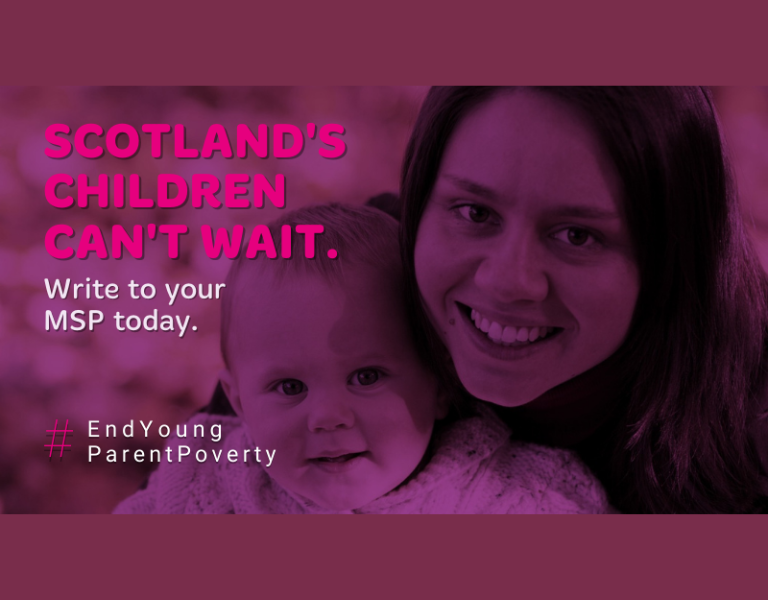
Caitlin Logan, Policy, Research and Influencing Lead, One Parent Families Scotland
The year is 2023. You are being discriminated against at work; receiving lower wages for doing the same job, no matter how hard you work or how many hours you put in – and all because of the demographic group you belong to. You’re powerless to complain, because it’s perfectly legal.
In fact, when you need financial support to top up your income through social security, you find the government is discriminating against you too – paying you a lower rate of benefits, regardless of your personal circumstances.
This sounds outrageous, and it is. But this is the reality for young people in the UK today.
Until you turn 23, you are entitled to a lower Living Wage than everyone else; and the rate is lower still if you are under 21 and even less if you’re under 18.
In social security, the discrimination continues for a bit longer – evidencing the apparent arbitrary nature of how these ages are plucked from thin air – with all under 25s receiving less each month in the ‘standard allowance’ for Universal Credit. There used to be exceptions to this for young parents, based on an understanding that these young people will have to pay for the same costs as parents of any age. But that was quietly scrapped as part of the sweeping welfare reforms passed in 2012.
While much has been said about other harmful changes introduced during that time, until recently this particular policy has gained less interest – perhaps because the people it affects are those whose voices are valued least in our political system. This is something we at One Parent Families Scotland are seeking to change with our campaign to End Young Parent Poverty.
Many young parents don’t even know they’re being treated this way, either because they’re still on legacy benefits and haven’t faced the cut in support yet, or because they just assume everyone on Universal Credit is receiving as little as them.
Young mums supported by One Parent Families Scotland have told us they’ve felt guilty or as though they were doing something wrong because they couldn’t cope on an unlivable income; all while having no idea that they would they be receiving more support if they were a couple of years older.
It will be obvious to anyone who appreciates the challenges faced by young parents that all sense of logic or evidence of need has been entirely flipped on its head with this policy. In Scotland, a shocking 55% of children with mums under 25 are living in relative poverty.
On a human level, this statistic represents young women who want the best for their children but who face multiple barriers to lifting their families out of poverty, including lower qualifications, a lack of flexible childcare, and the impacts of continual financial stress on their mental health.
In light of this, families with young mums have been identified by the Scottish Government as a priority group for tackling child poverty. What that means – or what it should mean – is that the government will prioritise action to reduce poverty amongst these families.
It’s easy to say that the policies which discriminate against young people come from the UK Government, so the responsibility for addressing that lies with them. It’s less easy for young parents and their children to live with the outcome of that approach if it means waiting years upon years for a political shift which shows no signs of emerging.
That’s why our campaign is focused on calling not only for the UK Government to stop discriminating against under 25s in Universal Credit, but for the Scottish Government to use the Scottish Child Payment to provide a top-up for parents under 25.
When we see someone struggling, we all have a choice to make about whether to do something to help. But some of us have more power than others to make a difference. The Scottish Government has substantial powers, so the question they will have to answer – sooner rather than later – is: how will they use them to help young parents and their children?
Scotland’s children can’t afford to wait.


Enter your email address to receive regular e-updates about our work. If at any time you want to stop receiving these, simply contact us. We’ll keep your details safe and won’t share them with any other organisations for their marketing purposes. For full details see our Privacy Policy.